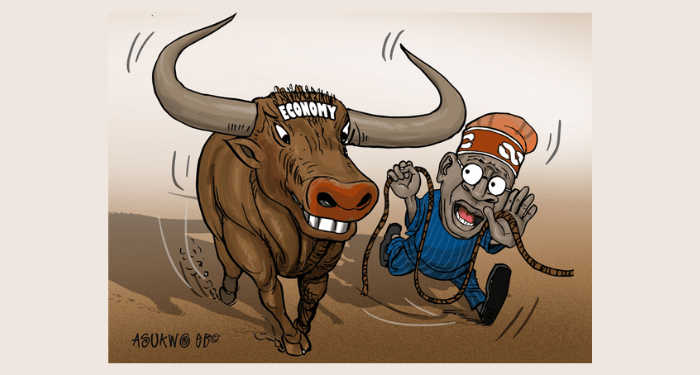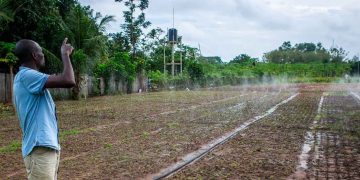Nigeria Exiting Years of Economic Doldrum But Hard Road Ahead Still
After years of a whirlwind, things have already started looking up for Nigeria according to a lenghty article by Bloomberg. Nigeria recorded its first balance of payments surplus in three years for 2024, as reforms including boosting oil and gas production, removing fuel subsidies and free-floating the naira paid off.
Africa’s largest oil producer posted a surplus of $6.83 billion in 2024, compared with a $3.34 billion deficit a year earlier. And on the strength of Dangote’s plant, Nigeria has become a net exporter of petroleum products for the first time in three decades. The facility is expected to run completely on local crude when the foreign supply contracts of domestic ¬producers expire this year. The refinery has the capacity to process 650,000 barrels of oil a day, meeting Nigeria’s entire petrol demand and leaving room for exports to grow.
Nigeria has also now paid off $3.4 billion borrowed from the International Monetary Fund during the Covid-19 pandemic, exiting the list of countries in debt to the Washington-based lender.
Nigerian foreign exchange reserves have increased, inflation has moderated and the naira has stabilised. In May, Moody’s Corp. upgraded the country’s foreign currency debt rating.
Assembling economic data about Nigeria’s economic well-bing is a continuous process, dependent on information that’s sometimes incomplete or late in arriving, which can lead to dramatic corrections as happened in the US a few weeks ago. Another such shift happened in Nigeria last month when it was announced that the nation’s gross domestic product was suddenly more than 30% bigger.
Gathering figures for an emerging or frontier market isn’t straightforward — particularly given how much activity occurs outside the formal part of the economy that features salaried workers. Arguably, the revised look at Nigeria offers a more accurate picture.
It remains the fourth-largest economy on the African continent, having lost its status as No. 1 two years ago, when President Bola Tinubu endorsed a more realistic exchange rate by letting the naira float more freely.
The new data show the west African nation to be more agricultural and less industrialised than before, according to an assessment by JPMorgan Chase economist Gbolahan Taiwo.
Manufacturing is less than 9% of GDP now, versus the near 14% previously claimed. And the “informal” sector is now bigger, at almost 43% of GDP — reflecting a nation that provides its citizens with few services.
In Nigeria’s economy, “you have to provide almost everything by yourself,” says Aliko Dangote, the nation’s and perhaps Africa’s most successful self-made.
There’s a long ways to go though. Almost a third of Nigeria’s 230 million-plus people live on less than $2.15 a day, the World Bank’s definition of extreme poverty. Life expectancy is age 54, five years lower than that of Somalia. Petrol and diesel generators provide much of the power consumed in the country because of perennial outages, and the skylines of big cities are littered with tanks holding water from privately dug boreholes.
This reality — grinding poverty in a country with great natural wealth — is common.
Economists call it the “resource curse” and consider Nigeria a prime example. The idea is that oil and other minerals can often hinder rather than help countries’ development.
Manufacturing is less than 9% of GDP now, versus the near 14% previously claimed. And the “informal” sector is now bigger, at almost 43% of GDP — reflecting a nation that provides its citizens with few services.
In Nigeria’s economy, “you have to provide almost everything by yourself,” says Aliko Dangote, the nation’s and perhaps Africa’s most successful self-made.
There’s a long ways to go though. Almost a third of Nigeria’s 230 million-plus people live on less than $2.15 a day, the World Bank’s definition of extreme poverty. Life expectancy is age 54, five years lower than that of Somalia. Petrol and diesel generators provide much of the power consumed in the country because of perennial outages, and the skylines of big cities are littered with tanks holding water from privately dug boreholes.
This reality — grinding poverty in a country with great natural wealth — is common.
Economists call it the “resource curse” and consider Nigeria a prime example. The idea is that oil and other minerals can often hinder rather than help countries’ development.
Studies have found that overreliance on such bounty can crowd out other industries, leaving countries underdeveloped and subject to volatile commodity prices.








